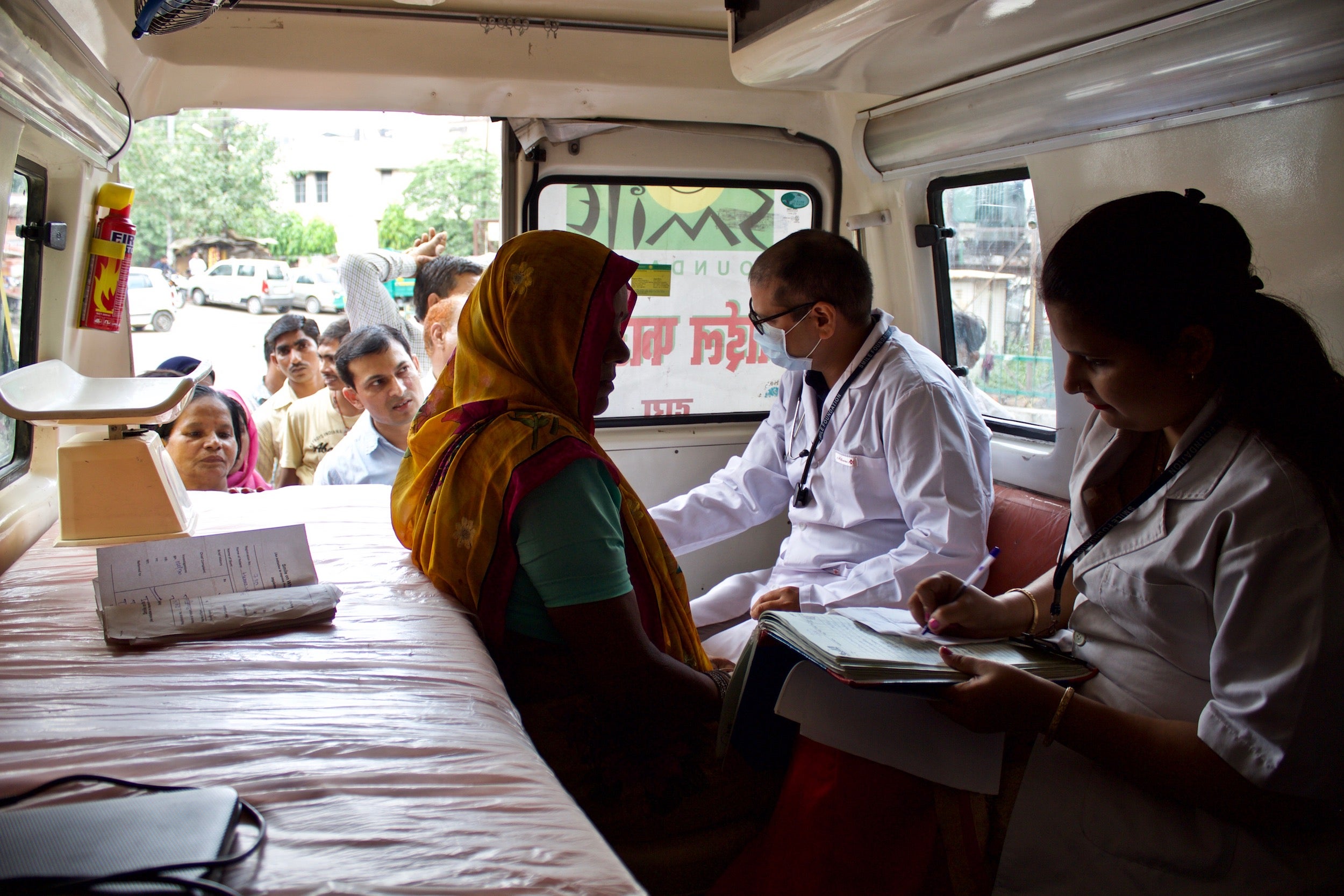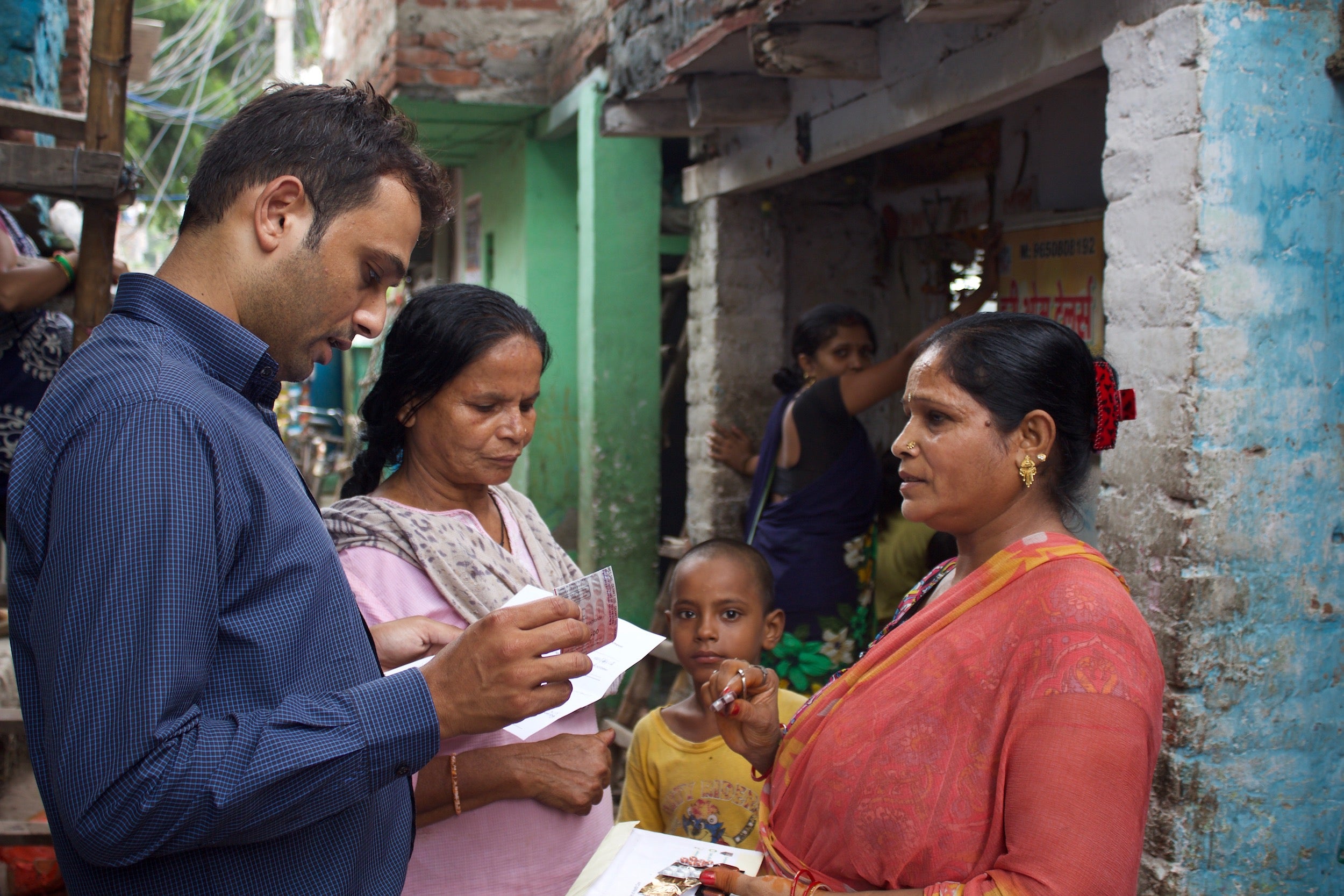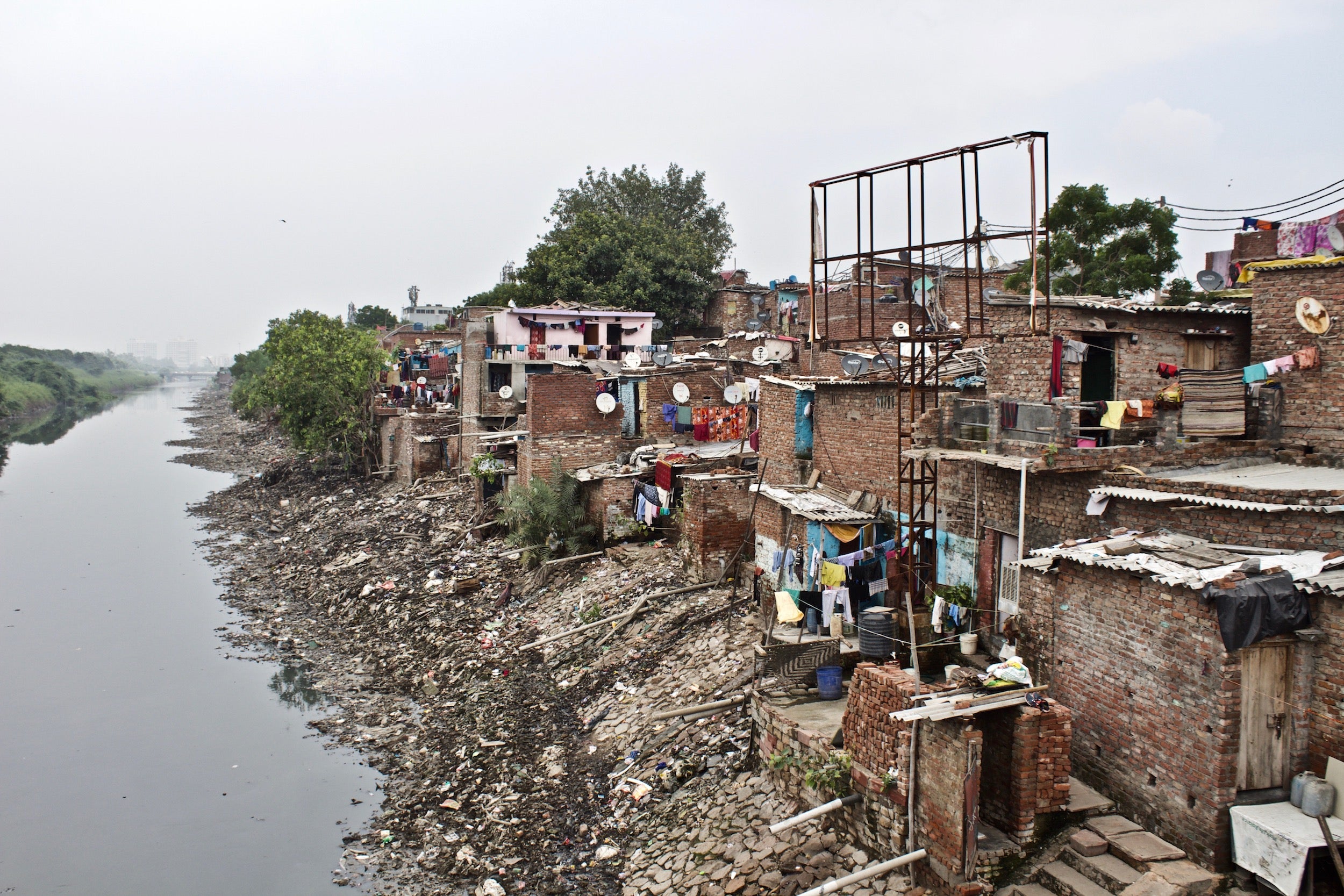Modicare: India launches world's biggest experiment in universal healthcare
Doctors and economists welcome the move to reform the country’s neglected public healthcare system. But concerns remain over awareness and funding – and whether the scheme has been rushed out as an election crowd-pleaser
India’s prime minister Narendra Modi is launching the world’s biggest experiment in universal healthcare, a scheme that the government says will grant 500 million people the entitlement to free health insurance overnight.
From the moment the programme is rolled out nationwide on Sunday, those living below the poverty line in India will no longer have to pay a single rupee for private hospital treatments that until now would have pushed such families into crippling debt.
At least that’s the plan. Senior doctors have voiced concerns that the scheme – dubbed “Modicare” by the Indian media – could undermine the very backbone of the country’s existing healthcare system and collapse within a year if poorly implemented.
They fear it has been rushed through as a grand populist gesture before a general election due in spring 2019. Mr Modi will declare the programme open to beneficiaries at a rally for his Hindu nationalist Bharatiya Janata Party (BJP) in the state of Jharkhand on Sunday.
And in a frank interview with The Independent, the top civil servant tasked with setting up the scheme admits it has been “almost impossible” in the time they were given since its announcement at the budget in February.
Officially titled Ayushman Bharat, Modicare will be provided in two strands. The first is a pledge to revamp 150,000 smaller doctors surgeries and community health centres into better-resourced, government-regulated “health and wellness centres”. Mr Modi will cut the ribbon on 10 of these new centres during his Jharkhand visit this weekend.
The second and more transformative pledge is the health insurance programme. It aims to plug the gap between India’s hugely overcrowded and understaffed public hospitals and the sleeker, at times state-of-the-art private sector hospitals that make up a staggering 70 per cent of the country’s total spending on health.
Families who are entitled to the scheme will receive a letter from the prime minister and a “gold card” that they can use to claim in-patient care at any registered hospital in the country.
But one of the biggest problems with Sunday’s launch is that while Mr Modi will claim the insurance programme to be up and running across the country, only a fraction of those it is supposed to be targeting are actually aware of its existence.
Overshadowed by gleaming highrise office blocks and hidden behind the barbed-wire fence of a major bus depot, nearly every resident The Independent speaks to in a Delhi slum has a story to tell of their frustrations with public healthcare, even here in the nation’s capital.

Asha, a woman in her forties, says a trip to hospital meant a whole day of queueing in packed waiting rooms, and there are always difficulties with the care. “Once I had to go to hospital for constipation, and they gave me medication for diarrhoea,” she says.
“Private hospitals are not an option because they cost so much – in my family there is only one breadwinner, my daughter. Now I will only go to hospital to get myself checked in the most extreme cases, if something very serious came up.”
Sucheta, a young mother of three carrying a baby, says she tried to go to hospital as little as possible. “The problem is the big queues, the crowds, and then spending money on tests, medicines and travel to get there,” she says, while also having no one else to look after her children if she went.
“The last time I visited hospital was when one of my children had an operation. The treatment cost me 10,000 rupees (£105),” she said – a huge sum of money, for which she had to turn to loan sharks.”
Sucheta and Asha speak as they wait to attend a mobile hospital run by the Smile Foundation, a healthcare and education charity working to bring primary healthcare services to communities that have been failed by the government system.

Living well below the poverty line, they are precisely the people Modicare should be about to cater for – yet not a single person who visited Smile’s mobile hospital on its rounds, one week before the programme’s launch, is aware of the government scheme.
It means the rollout on Sunday will be nationwide in all but name. Dr Indu Bhushan, formerly the top Indian official at the Asian Development Bank and now chief executive of the agency delivering the health insurance aspect of Modicare, says it has been a deliberate policy not to publicise the vast programme too widely.
“We didn’t want to have a huge [public awareness] drive before our hospitals were ready and a fit scheme was in place,” he says.
“When we had a meeting with the prime minister four months ago, he told us not to have this drive because he didn’t want people to go knocking at the doors of the hospitals asking for services [from day one].”
Dr Bhushan compares Sunday’s launch to Uber arriving in a new city. “Uber has this strategy to make sure all its cars are in place before enrolling members – otherwise people will find there are no cars and be turned off from the service,” he says.

The amount Dr Bhushan and his team have achieved in seven months should not be underestimated. Deals have been struck with 31 of the country’s 36 states and territories, liaison officers have been trained and placed in some 10,000 hospitals to explain people’s entitlements and an IT system has been set up from scratch where people can check their eligibility for the scheme and apply for support.
Most of the hospitals that have signed up to provide services under the new insurance scheme are public, however, and many are in states that had a head start with similar, smaller schemes of their own.
The biggest challenge will come in states where they have had to start from scratch. “I must say there is still a long way to go in terms of ensuring that all the states are at the same level,” Dr Bhushan says.
In the lead-up to launch, the Indian Medical Association has repeatedly expressed concerns that the amounts of money offered to hospitals to treat patients under Modicare are too low.
At the IMA’s headquarters, Dr RN Tandon, the general secretary of the body representing more than 250,000 doctors, says the programme “should be a game changer”, but that “many question marks” remain on the eve of its rollout.
He uses the example of a caesarean section, saying the procedure costs a hospital around 16,000 rupees (£170) to deliver. The government has said it will pay back private hospitals 9,000 rupees (£95) for every caesarean they complete under Modicare.
“These packages are not realistic,” Dr Tandon says. “A small hospital can work for maybe a month or two months [at such rates], but it is not possible to sustain for more than that, so what will happen? They will have to close down.
“This is what we have told [the government], that we do not want to see these small hospitals disappear from the mix, because they are the backbone of Indian healthcare. Only they can work in remote areas, providing healthcare in difficult-to-reach places. They are huge in number. They must survive to keep India surviving.”
Dr RV Asokan, the IMA’s chair, says he is “happy that for the first time in elections in India, the matter of healthcare spending has become an issue”.
But the programme, he adds, is “grossly underfunded, to the level of a joke”, and that a “proper costing” was needed to get private sector hospitals involved.
“People are dying on the streets of India and under this government for the first time healthcare spending came down to 1 per cent. If the package rates do not improve, the entire private sector will not be able to join,” he warns, adding that this would cause “the system to collapse”.
The government is now in talks with the IMA, as well as private hospitals, over the issue of rates, though the programme will launch with them unchanged. Dr Bhushan says the government is willing to review them “as soon as we have any new data or evidence that these prices are not fair”.
His agency projects that funding the scheme will cost central and state governments 100bn rupees (£1.06bn) in the first year, rising to around triple that amount once awareness grows and all those entitled are signed up. The cost, Dr Bhushan says, will be covered under plans to raise healthcare spending to 2.5 per cent of GDP by 2025.
For Dr Sudipto Mundle, one of India’s most senior economists, the apparently vague budgeting for Modicare represents “the big elephant in the room” when talking about whether it will be a success. He believes the country will struggle to fund the programme without raising the fiscal deficit, something the finance ministry has already ruled out.
“Let’s assume the elections weren’t happening, perhaps this would have been rolled out more gradually without so much of a rush,” he says.
He also raises questions over the need for such investment in in-patient care when the money might have been better used to address the “appalling neglect of primary healthcare”.
Nonetheless, he says the programme is actually “far better prepared” than the rollouts of demonetisation in 2016 and a general sales tax in 2017, with the implementation of both those flagship policies coming in for criticism.
“I am very happy it’s happening and I am quite amazed at how quickly they have done it,” he says. “It is not that suddenly come Monday this thing will be fully up and running and operational, like with all these things they had to make a start.
“It will be launched, but there will still be a lot of work to do,” he said. “I would be surprised if it was happening any other way.”
Join our commenting forum
Join thought-provoking conversations, follow other Independent readers and see their replies
Comments
Bookmark popover
Removed from bookmarks